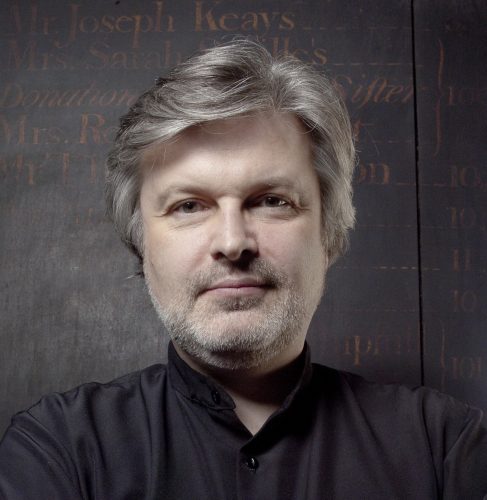As a composer-conductor, what are the some of the differences between conducting your own music and listening to others’ interpretations? Do you have a preference?
When I conduct a piece of my own, I have to learn it from scratch again, just as if it was someone else’s music. A different mind set is needed – more detachment, more objective insight is required perhaps – to interpret it more fully. I have no preference between my own performances and those of others. I’m just delighted that people want to present my music in their programmes.
Holy Week seems to be a source of great inspiration for you as a composer: what is it about this time of the church calendar that you find particularly striking?
Yes, there seems to be ever-new ways of telling an old story – the greatest story ever told. I think the crucifixion narrative is powerful in any artist’s hands, regardless of their own world view, but I certainly approach this source as a believer, and someone who is gripped by the implications of Christ’s life and death. It’s no accident for me that I keep coming back to these days in history, as a time which is full of inspiration and musical fruitfulness for me.
Seven Last Words is now twenty-five years old: has the piece evolved for you at all and, if so, how?
It feels like reading old letters which one wrote when one was much younger – they are clearly written by the same hand, coming from the same mind, but there is a realisation that a lot has changed in the interim period. I myself have performed the work a lot over the last 25 years, and it feels it has evolved and matured in that time. I also enjoy hearing how others approach the music, as they bring new insights all the time.
Tenebrae and Britten Sinfonia perform MacMillan’s Seven Last Words from the Cross on Good Friday, Fri 19 April 8pm at St John’s Smith Square.
You will be conducting The BBC Singers in a programme of your own music at this year’s Holy Week Festival. What do you look for in a choir and how do you go about getting the results you want?
I work with many different choirs all over the world and hear very different choral characteristics in their performances of my music. I’m quite non-proprietorial about my music and I am at ease with these, sometimes very wide and dramatic variations. Nevertheless, there is something about the British choral sound which does suit a lot of my music, especially the unaccompanied works.
You’re also doing a workshop on your own music, what part do you most enjoy about leading workshops? Any advice you can give for the attendees?
I try to open up the sound world of my imagination to the amateur volunteers who come and take part in these workshops. I value the ecology of the British amateur choral world, and many British composers have enthused about writing music for these singers. It is a vibrant and exciting sub-culture and I have deliberately tried, over the years, to create a body of choral work which is suited to it. It’s a part of my work that I see as being fundamentally very important.
Sir James will lead a workshop of his music on Thursday 18th April, 11:00 at St John’s Smith Square.
Which piece are you most looking forward to hearing in this year’s Holy Week Festival?
I’m excited that I’m including some of Gesualdo’s Responsaries for Tenebrae in my BBC Singers concert. This is music that means a lot to me – it is strangely dramatic and colourful for all its original devotional purposes. The motets will provide a lovely context and contrast to my own music.
Sir James will be conducting the BBC Singers as part of the Holy Week Festival on Maundy Thursday, 18th April 7:30pm at St John’s Smith Square.

credit: Philip Gatward